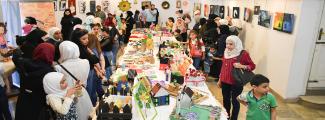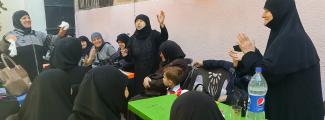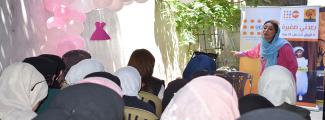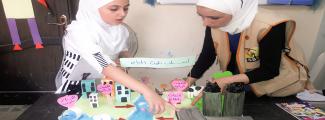"From now on, I will make time to take care of myself. I will revert to beneficial things and keep away from social media."
"I am so happy to be part of this initiative; it introduced me to mature people coming from different age groups, their experience made me realize that there are beneficial things to enjoy, other than social media channels."
"This initiative stressed the importance of continuous communication with our kids to ensure they do not use cell phones for long periods of time."
The above-mentioned comments were made by the women and girls who attended awareness raising initiatives throughout the community centers attached to the Syrian Society for Social Development (SSSD) during September, namely, Shams Center in Al Shaar, Arabesque Center in Bab Hadeed, Amal Center in Al Fardos, Mosaic Center in Al- Asharfiyyeh, Sada Satellite Center in Sakhour, Al-Hader Satellite Center in Rural Aleppo.
The initiative "Use me Safely" was launched by women committees who actively attracted the largest possible number of females from all age groups, with the aim to raise their awareness levels about the negative effects of the overuse of social media channels, especially domestic violence.
Based on community assessments, the women committees plan to launch a complementary initiative to train females on handicrafts, namely, wool knitting (incorporating beads and making flowers). Handicrafts would help them invest their free-time in beneficial things and keep them away social media.
Here are comments made by two women from the women committees:
"The upcoming initiative, wool knitting training next month, is very important. It will occupy the free-time of girls and women to learn something beneficial."
"We worked on attracting new females to ensure the wide spread of awareness among people. The success of this initiative motivates us to launch more initiatives."





